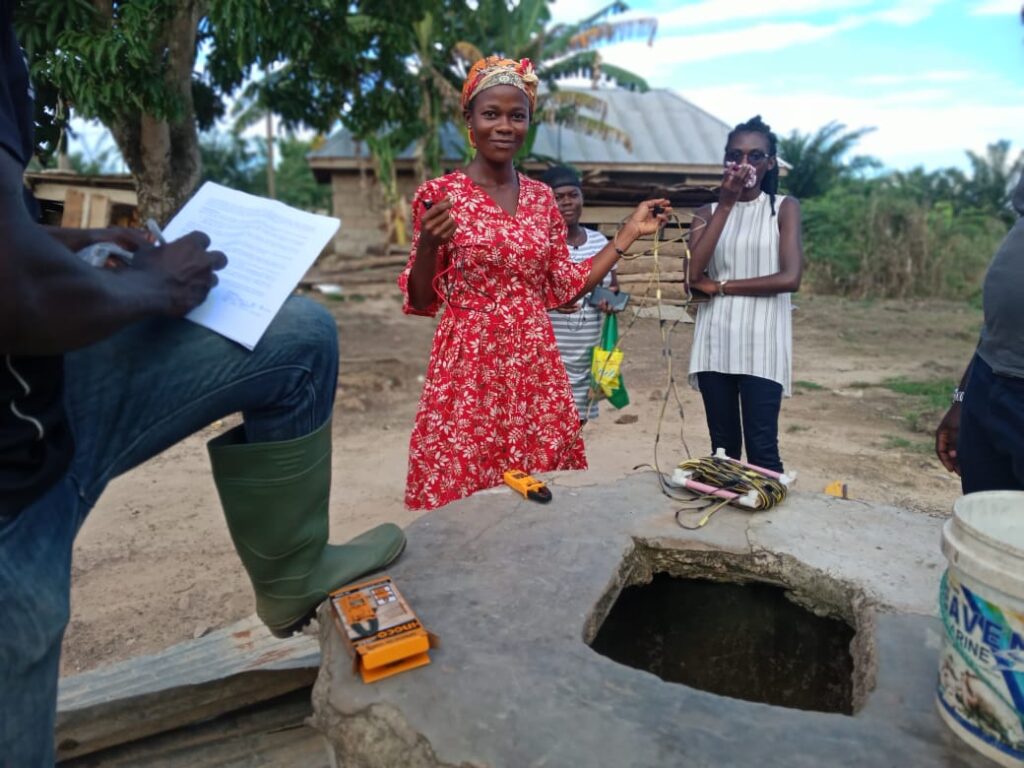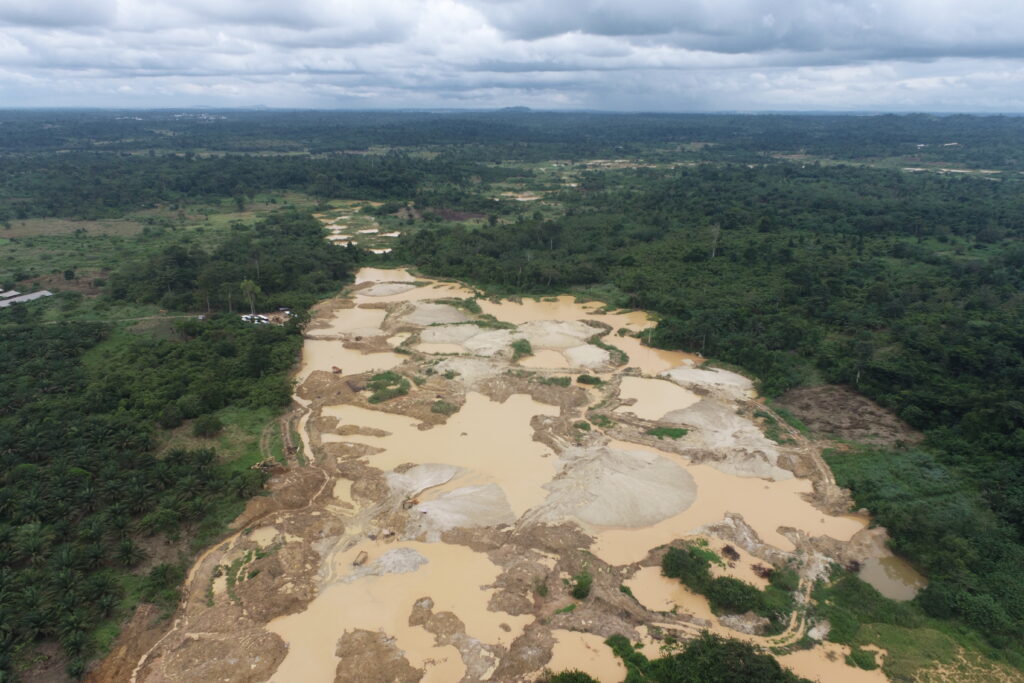By Andoh Kwaku Amponsah, Seifu Admassu Tilahun, Gerald Atampugre and Olufunke Cofie.

In the heart of Ghana’s Ahafo Ano South-West District a remarkable initiative is taking place. Six individuals from the three local communities of Kunsu, Barniekrom, and Mmrobem, fueled by a passion for their environment, are pioneering the first-ever citizen science activity for the evaluation of hydrological dynamics and water quality in agricultural landscapes in Ghana’s Forest Transition Belt. This groundbreaking demonstration activity, a component of CGIAR’s initiative to co-transform Agri-Food systems, is empowering youth and fostering responsible environmental stewardship. The beneficiaries of this citizen science activity are mainly women and youth of the three communities.
The Ahafo Ano South-West district, located in the Northwestern part of the Ashanti Region, and renowned for its cocoa production and agroforestry practices, is facing significant challenges. Illegal mining, known as galamsey and illegal logging threaten the social-ecological balance and disrupt economic activities.
Recognizing the need for action, the district, Kwame Nkrumah University of Science and Technology (KNUST), and the International Water Management Institute (IWMI) though the CGIAR’s Transforming Agrifood System in West and Central Africa (TAFS-WCA) initiative launched a unique demonstration activity with three key goals.
Raising Awareness: By actively participating in citizen science, these young Ghanaians will develop a deeper understanding of the environmental challenges their community faces. Witnessing firsthand the impact of competing land use practices equips them to become advocates for sustainable solutions.
Building Capacity: The activity goes beyond mere observation. The participants received comprehensive training in data collection, analysis, and communication. This empowers them to interpret their findings and share them effectively with stakeholders, influencing decision-making at local level.
Fostering Inclusion: Including three young women in the activity sends a powerful message. By actively engaging diverse voices, the initiative ensures a more comprehensive understanding of the community’s needs and perspectives, promoting equitable participation in addressing environmental challenges.
It is not just about collecting data; it’s about empowering a generation. By nurturing these young Ghanaians’ knowledge, skills, and passion, the demonstration project paves the way for a more sustainable future for the Ahafo Ano South-West District and beyond.

Key activity takeaways
Citizen science programs can be powerful tools for promoting environmental awareness and action, especially when tailored to local contexts and needs.
Empowering women and youth is crucial for building a more sustainable future. We can unlock their potential to become agents of positive change by providing them with the necessary skills and opportunities.
Inclusive approaches are essential for ensuring that all voices are heard and that solutions address the diverse needs of a community.
The journey of involving citizens in IWMI’s research for development work has been growing over time, with initiatives ranging from water quality monitoring to flood modeling. This citizen science demonstration project is another testament to the power of grassroot initiatives and collaborative efforts in West Africa. This demonstration in Ghana offers a compelling example of how citizen science can empower local communities to tackle complex environmental challenges and build a brighter future. Let’s hope it serves as an inspiration for similar projects around the world, fostering a future where environmental stewardship is driven by informed and engaged citizens.

